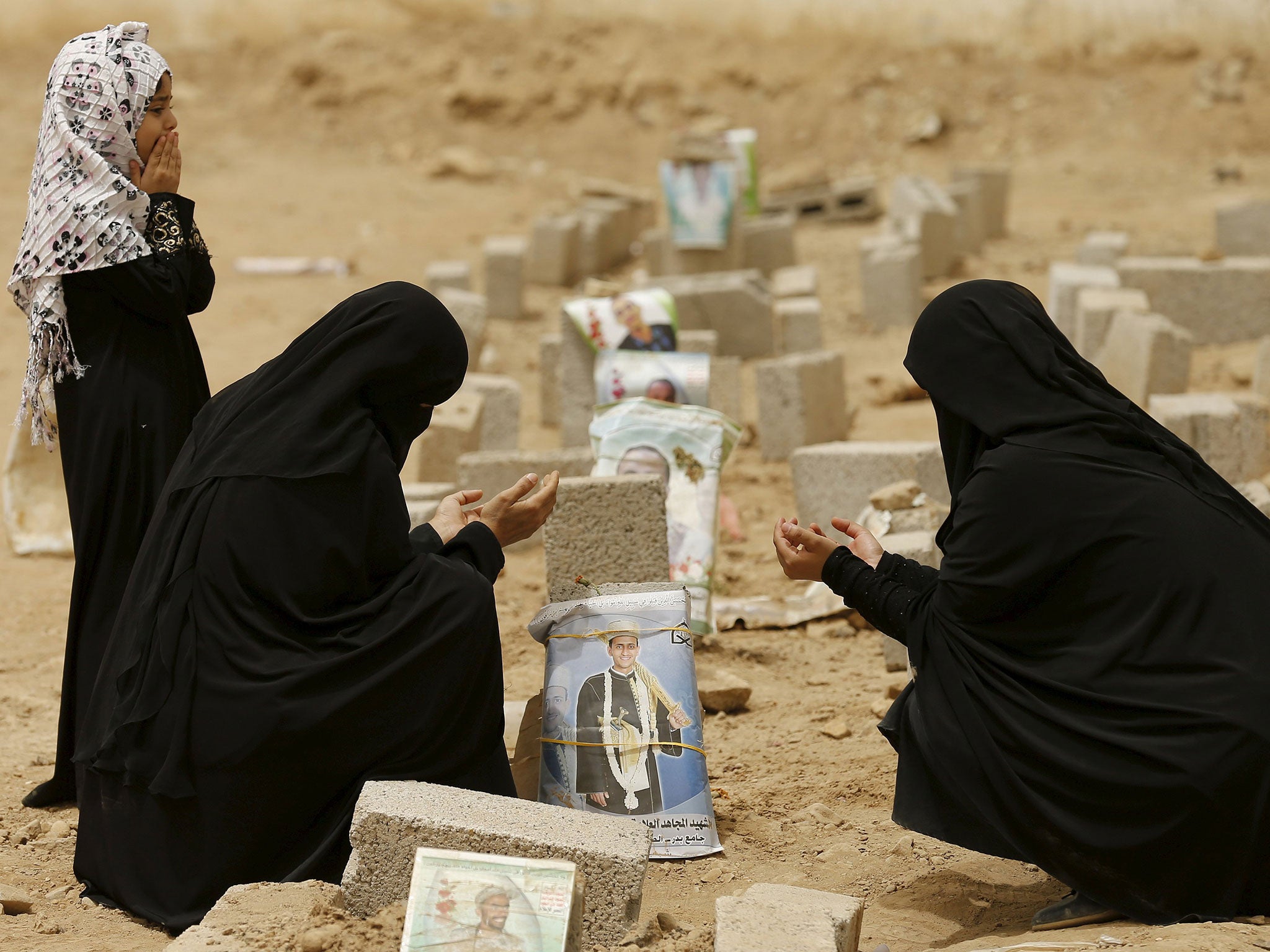Yemen eyewitness: Saudi-led coalition's bombardment of Houthi rebels is hitting civilians too
Confused, scared out of our wits, we stared at each other in horror, writes Sanaa resident Hisham Omeisy

Your support helps us to tell the story
From reproductive rights to climate change to Big Tech, The Independent is on the ground when the story is developing. Whether it's investigating the financials of Elon Musk's pro-Trump PAC or producing our latest documentary, 'The A Word', which shines a light on the American women fighting for reproductive rights, we know how important it is to parse out the facts from the messaging.
At such a critical moment in US history, we need reporters on the ground. Your donation allows us to keep sending journalists to speak to both sides of the story.
The Independent is trusted by Americans across the entire political spectrum. And unlike many other quality news outlets, we choose not to lock Americans out of our reporting and analysis with paywalls. We believe quality journalism should be available to everyone, paid for by those who can afford it.
Your support makes all the difference.It was after midnight. We woke to an earth-shattering explosion that shook buildings and knocked people out of their beds, including me and my two boys of five and 10 years old.
Confused, scared out of our wits and dazed, we were staring at each other in horror. We refused to believe that Sanaa, which we have safely lived in, called home and never fled despite multiple conflicts, was being bombarded by air strikes and in a manner we’d never even witnessed during Yemen’s 1994 civil war.
Living in an apartment building, not knowing who was bombarding us and why wasn’t our biggest concern in that moment of panic on 25 March; it was where and how we were to protect ourselves when it became clearly evident that whatever the planes were targeting was too close.
With the bombardment intensifying and anti-aircraft guns frantically going off from all directions, the realisation that Sanaa neither has bomb shelters to rush to nor civil-defence systems to count on for rescue or guidance, increased our sense of desperation.
We hid in the basement, hoping the concrete would provide some protection against a rocket that may hit the building. Along with the other apartments’ residents, we huddled while children cried to the now-deafening explosions, thuds and rattling of anti-aircraft guns. That’s when the electricity abruptly went out and we simply hugged each other in absolute terror in the darkness.
This has been going on for days now. At first the air strikes would only commence and bombard the city at night. Now air raids are taking place during the day as well. Although the targets are mainly military bases and Houthi positions in the capital, they are numerous, spread out and within heavily populated residential areas of the city. Many of the capital’s residents have left.
Fear of being killed by an air strike or becoming a collateral causality isn’t the only thing Yemenis have to contend with. The coalition has sealed off the country by shutting down air and seaports and blockaded all inbound and outbound traffic.
To a country which imports 90 per cent of its food, drugs, and supplies, this is, in effect, sentencing an entire nation to death by starvation, not just a single faction within it.
Food is disappearing from shops’ shelves, while a black market has risen up where items in short supply are being sold at three times their original price.
There are very long queues at the few, state-run food distribution centres where only some of the items sought are sold until supplies run out.
To add to the hardships of the average Yemeni citizen, state electricity supplies are minimal and sporadic. People compensate for this by using their own generators. With 80 per cent of petrol stations shut now, queues are again a common scene at those which remain open.
My country has always been referred to in doomsday terms as being on the brink of collapse, on the verge of becoming a failed state, at risk of civil war, or taken over by al-Qaeda. Now, ours is a nation being held hostage to the current conflict, war, or whatever the coalition prefers to call it.
Yemenis, barely with enough money in their pockets, queue for hours for food or fuel while in absolute fear of being killed by an air strike, explosion, rounds from anti-aircraft guns or bullets from one of the many armed men looking for any chance to unleash their anger.
We equally suffer regardless of whether we are pro or anti the Saudi coalition. We are in the wrong place at the wrong time. Again.
Join our commenting forum
Join thought-provoking conversations, follow other Independent readers and see their replies
Comments